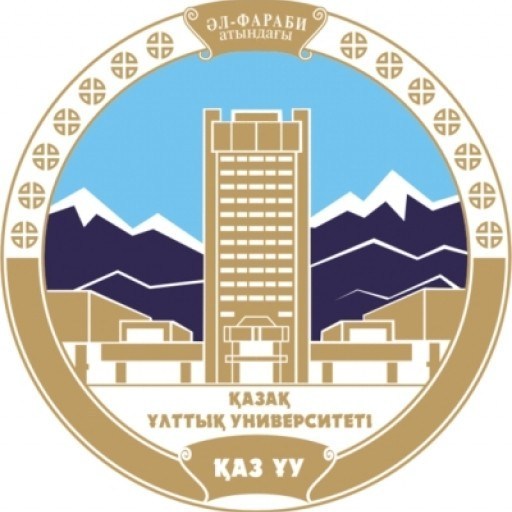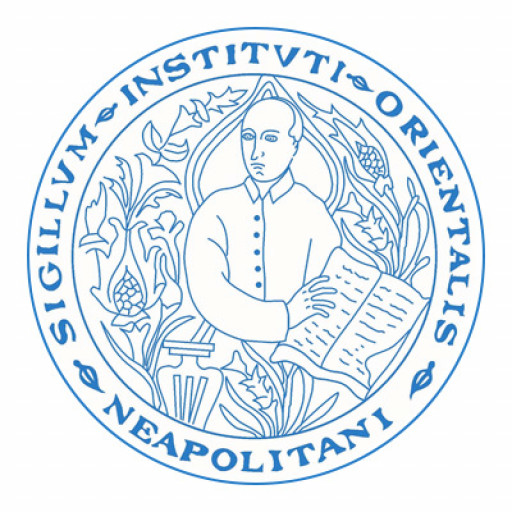Photos of university
Field of study: Archaeology and Ethnology
Degree level: Bachelor's
Duration of study: 4 years
Language of instruction: Kazakh, Russian, English
Accreditation: The program is accredited by the relevant educational authorities and complies with international standards in higher education.
Program description:
The Bachelor's program in Archaeology and Ethnology at Al-Farabi Kazakh National University is designed to prepare specialists with comprehensive knowledge and practical skills in the study of human history, culture, and ethnicity. The curriculum provides students with a strong foundation in archaeological research methods, ethnographic fieldwork, cultural heritage management, and the theoretical aspects of human history and society. Students will explore the development of early civilizations, the evolution of cultural practices, and the diversity of ethnic groups within Kazakhstan and globally. The program aims to develop analytical, research, and communication skills, enabling graduates to work in museums, cultural heritage institutions, archaeological expedition teams, research organizations, and academic settings.
Throughout the course of study, students will engage in practical training through field excavations, laboratory analysis, and ethnographic studies. They will learn to employ modern technological tools such as GIS, remote sensing, and digital recording in archaeological and ethnological research. The program emphasizes interdisciplinary approaches, integrating history, anthropology, linguistics, and cultural studies, to offer a holistic understanding of human societies across different periods and regions.
Graduates of this program will be equipped to contribute to the preservation and promotion of Kazakhstan's rich cultural heritage, participate in archaeological excavations, conduct ethnographic research, and analyze cultural phenomena. The curriculum is complemented by lectures from leading experts, participation in scientific conferences, internships, and collaborative projects with international research institutions. The program prepares students for postgraduate studies and careers in scientific research, cultural preservation, tourism, and education.
The Bachelor’s degree in Archaeology and Ethnology not only aims to develop professional skills but also encourages critical thinking, cultural awareness, and ethical research practices. It is committed to fostering a deep appreciation of human diversity and historical memory, contributing to the sustainable development of Kazakhstan’s cultural and scientific landscapes. Graduates will become qualified specialists capable of addressing contemporary challenges related to cultural heritage management and the understanding of human societies.
Age of Stone
Ancient and Medieval Architecture in Central Asia
Ancient and Medieval History of Kazakhstan
Early Iron Age
Ethnography of Australia, Africa and the Americas
Ethnography of the Ethnic Groups in Kazakhstan
Ethnography of the Turkic World
Foreign Archaeology
Foreign Language for the Professional Purposes
Historical Anthropology
Historical Demography
Historical Local Studies
History of Kazakhstan
Information and Communication Technologies
Information Technologies
Introduction To Archaeology
Introduction To Ethnology
Medieval Archaeology
Methodology of Ethnological Research
Methods of Teaching History
Military Training
Modern History of Kazakhstan
Museology
Oriental Languages for Professional Purposes
Petroglyphs of Kazakhstan
Philosophy of Scientific Knowledge
Physical Training
Prehistoric Human Evolution
Professionally-Oriented Foreign Language
Professionally-Oriented Kazakh (Russian) Language
Professionally-Oriented Kazakh Language
Professionally-Oriented Russian Language
Restovration, Conservation and Use of Monuments of History and Culture
The Bronze Age
The Concept of Modern Science (Paleontology)
The Method of Archaeological Excavations
Theoretical Archaeology
Theoretical Ethnology
World History
World Monuments of Archaeology
Ethnography of Eurasia
Programme requirements for Archaeology and Ethnology at Al-Farabi Kazakh National University typically include a combination of academic qualifications, language proficiency, and specific application materials. Applicants are generally expected to have completed secondary education with a high school diploma or equivalent, demonstrating strong performance in relevant subjects such as history, social studies, and foreign languages. Prospective students must submit a completed application form along with certified copies of their educational certificates and transcripts. Proof of proficiency in the Kazakh, Russian, or English languages may be required, depending on the medium of instruction. Additionally, applicants might need to pass entrance examinations or interviews that assess their knowledge of humanities and social sciences, as well as their motivation for studying archaeology and ethnology. Prior experience or interest in cultural studies, anthropology, or related fields can be advantageous. Some programs also encourage applicants to submit a motivational letter outlining their academic interests and career goals. The university values applicants with analytical skills, keen interest in research, and the ability to work in diverse cultural environments. International students may be required to provide evidence of language proficiency through standardized tests such as TOEFL or IELTS, and may also need to meet visa and residency requirements. Meeting these programme requirements ensures that applicants are prepared to undertake rigorous coursework and practical fieldwork integral to archaeology and ethnology studies.
The Financing of the Archaeology and Ethnology program at Al-Farabi Kazakh National University is primarily based on a combination of state funding and, to some extent, paid contract-based education. The program is part of the university’s broader strategy to develop highly qualified specialists in the fields of archaeology and ethnology, which are considered vital for the preservation and study of Kazakhstan's cultural heritage. State-funded places are allocated through national and university-based admission quotas, ensuring that talented students from across the country have access to quality education without financial barriers. These state grants are provided based on competitive entrance examinations, academic achievements, and quotas for socially vulnerable groups. For students enrolled under the contract form of study, tuition fees are paid directly by the students or their sponsors, which include families, government scholarship programs, or external organizations interested in supporting cultural research fields.
The university develops its budget for the program by allocating funds received from the government for public educational services, supplemented by additional financial sources such as research grants, project funding, and partnerships with cultural institutions or archaeological agencies. These funds are used not only for maintaining the academic and research activities associated with the program but also for supporting student participation in international seminars, field excursions, and internships, which are integral to practical training in archaeology and ethnology. Scholarships and stipends are provided to outstanding students and those involved in particular research projects, allowing them to focus intensively on their academic pursuits.
The university actively seeks collaborations with governmental bodies, international organizations, and educational foundations to improve the financing structure of the program. Such partnerships often result in funding for specialized research projects, archaeological excavations, or ethnographic studies, contributing further to the educational experience and employment prospects of graduates. Overall, the program's financing model ensures a balanced approach, combining state support with opportunities for paid study, research funding, and international cooperation, which collectively aim to sustain high-quality education and ongoing scientific research in the field of archaeology and ethnology at Al-Farabi Kazakh National University.
Certainly! Here is a detailed description based on available information and typical university program descriptions:
The Bachelor's degree program in Archaeology and Ethnology at Al-Farabi Kazakh National University offers students comprehensive training in the study of human history, culture, and societies. The program aims to develop a deep understanding of archaeological methods, ethnographic research techniques, and the cultural diversity of Central Asia and beyond. Students will explore ancient civilizations, material culture, and ethnographic traditions through theoretical courses and practical fieldwork. The curriculum includes coursework in historical archaeology, ethnographic fieldmethods, conservation and restoration of archaeological sites, analysis of artifacts, and cultural anthropology.
Throughout the program, students have opportunities to participate in excavations, museum studies, and ethnographic research projects, often collaborating with local communities and international institutions. The program emphasizes both the scientific and cultural aspects of archaeology and ethnology, preparing graduates for careers in cultural heritage management, museum curation, research, and education. Students are also encouraged to develop analytical skills, critical thinking, and interdisciplinary approaches necessary for understanding complex cultural phenomena.
Al-Farabi Kazakh National University provides modern laboratories, archaeological sites, and access to extensive archives and collections that support student learning and research activities. The program also fosters language skills, including proficiency in Kazakh, Russian, and English, to facilitate communication in international research contexts. Graduates of the program are equipped to contribute to the preservation of cultural heritage, conduct field research, and engage in policy-making related to cultural and archaeological resource management. This program is ideal for students passionate about exploring human history and cultures, particularly within the Central Asian region, and those interested in pursuing postgraduate studies or careers in academia, archaeological excavation, museology, and cultural policy development.








